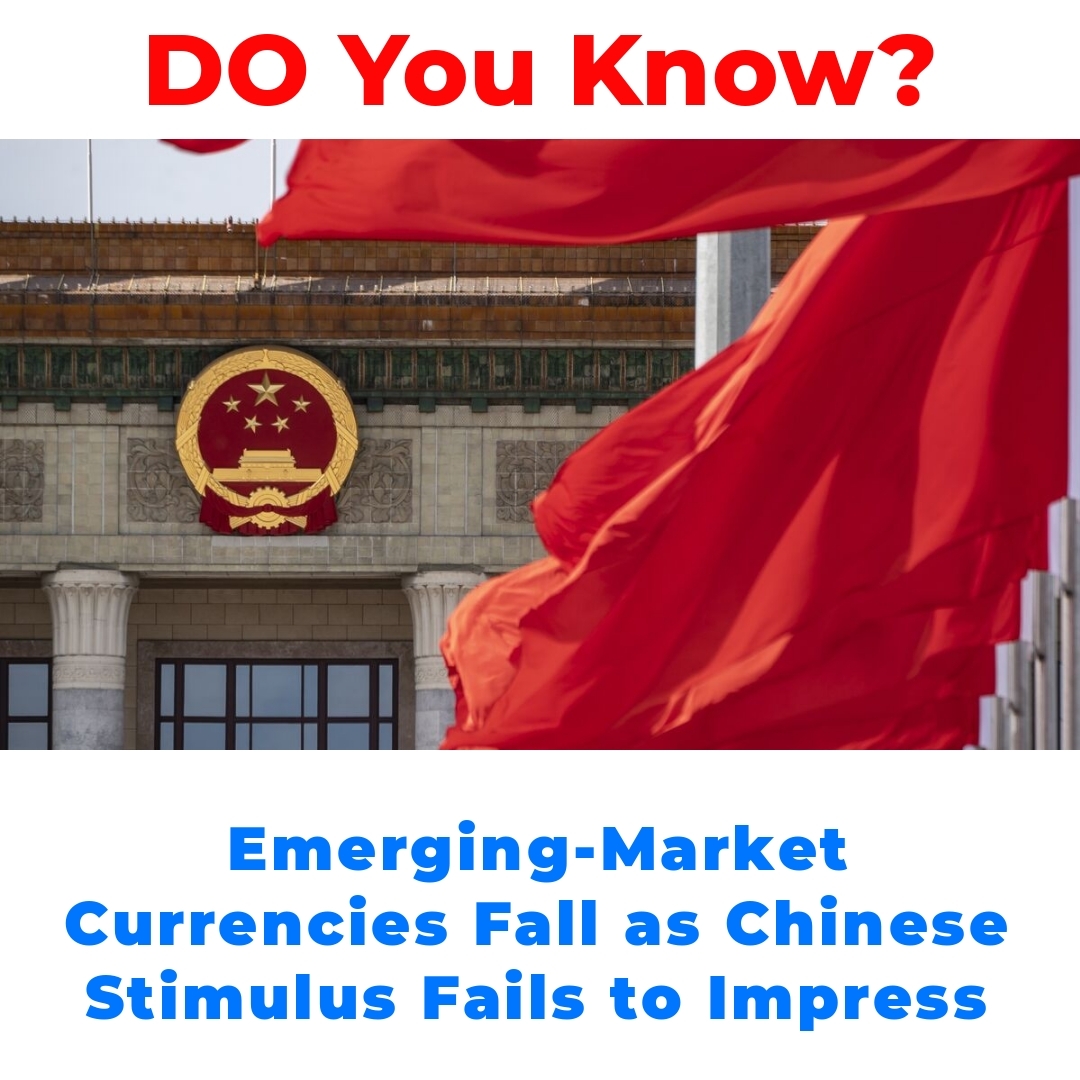Emerging-market currencies play a vital role in global financial markets, reflecting the economic health of developing economies. Recently, Chinese stimulus measures have significantly influenced these currencies amid prevailing trends, especially in light of the robust performance of the U.S. dollar. Understanding these dynamics is crucial for investors and economic analysts.


Current Economic Landscape
The strength of the U.S. dollar remains a crucial factor influencing emerging-market currencies. When the U.S. dollar performs well, it often creates challenges for economies that rely on exports, making their goods more expensive for buyers using stronger currencies. This dynamic can lead to depreciation in emerging-market currencies, impacting their economic stability.
Recently, China announced a series of stimulus measures aimed at boosting its own economy, which is facing headwinds. These measures are designed to support growth amidst a slowing domestic market. By injecting liquidity into the economy, China aims to stabilize its growth and, in turn, indirectly impact emerging-market currencies. This raises important questions about how these Chinese stimulus measures affect the broader economic context and, specifically, the performance of emerging currencies.
Analysis of Currency Movements
When examining currency fluctuations, especially during challenging economic periods, it’s evident that emerging-market currencies can experience significant volatility. For instance, recent trading patterns have shown that during bond market holidays, trading conditions tend to thin out. This lack of liquidity often leads to more exaggerated price swings as there are fewer buyers and sellers in the market. Historical instances show that similar scenarios have led to unexpected and drastic fluctuations in currency values.
Impact of Chinese Stimulus on Emerging-Market Currencies
As we dive deeper into the impact of Chinese stimulus on emerging-market currencies, we can see varying responses across different regions. For example, countries that have strong trade ties with China, like Brazil and Indonesia, have felt a noticeable lift in their currencies following the announcement of new stimulus measures. Investors reacted positively, seeing potential for increased demand for commodities from these emerging markets as China ramps up its economic activities again.
Moreover, analyzing recent data surrounding these currency movements reveals discernible patterns. During weeks of heightened economic activity in China, many emerging-market currencies have shown stronger performance, often correlating directly with the timing of stimulus announcements. Measurements taken during this recent period indicate that as the Chinese economic policies unfold, many of these currencies are regularly fluctuating in response, highlighting the interconnectedness of global markets.
The Broader Economic Impact
Understanding the economic impact of stimulus measures, particularly those from China, is critical for any investor looking at global markets. These measures can stabilize currencies in some cases, providing a buffer against volatility, while in others, they might create destabilization if the growth isn’t sustained. The ripples from the Chinese economy can affect a myriad of global exchanges; hence, monitoring how these emerging-market currencies respond is vital for making informed investment decisions.
Looking ahead, the future outlook for emerging-market currencies amid these stimuli seems cautiously optimistic. If these Chinese policies continue to yield positive results, we could expect to see further strengthening of various emerging-market currencies. However, it’s also essential to consider potential headwinds, such as the ongoing strength of the U.S. dollar, which could temper any significant growth in these currencies.
Conclusion
In summary, we’ve explored how recent Chinese stimulus measures have impacted emerging-market currencies as well as the larger economic landscape. The reactions of these currencies reflect a complex interplay between global economic conditions and local policies, making it imperative for stakeholders to keep a close watch on these developments. Staying informed about these dynamics will not only enhance investment strategies but will also provide insights into potential future movements in global financial markets.
In closing, understanding the nuances surrounding emerging-market currencies and the influence of Chinese economic policies is essential. For anyone invested in global markets, keeping up with these trends can lead to better decision-making and investment outcomes. Don’t forget to explore more resources to stay ahead in the ever-evolving financial landscape!
FAQ
How does the strength of the U.S. dollar affect emerging-market currencies?
The U.S. dollar’s strength can create challenges for emerging-market economies, especially those that depend on exports. When the dollar performs well, goods from these economies become more expensive for foreign buyers, potentially leading to currency depreciation and economic instability.
What recent actions has China taken to boost its economy?
China has introduced a series of stimulus measures aimed at supporting its economy, which is currently facing difficulties. These measures are meant to inject liquidity into the market and stabilize growth, which may also impact emerging-market currencies.
What impact do Chinese stimulus measures have on emerging-market currencies?
Different emerging-market currencies respond differently to Chinese stimulus. Countries with strong trade connections to China, like Brazil and Indonesia, often see a boost in their currencies due to anticipated increased demand for their commodities as China ramps up economic activities.
Why do emerging-market currencies experience volatility during bond market holidays?
During bond market holidays, trading volume tends to decrease, resulting in thinner markets. This lack of liquidity can lead to exaggerated price swings in emerging-market currencies, making them more susceptible to sudden fluctuations.
What can investors expect regarding the future of emerging-market currencies?
The outlook remains cautiously optimistic if China’s stimulus measures continue to show positive results. However, the ongoing strength of the U.S. dollar may still pose challenges to significant growth in these currencies.
Why is it essential to monitor the impact of Chinese economic policies?
Keeping an eye on Chinese economic policies is vital for investors as they can influence global markets. Understanding these dynamics helps in making informed investment decisions and anticipating currency movements in emerging markets.





